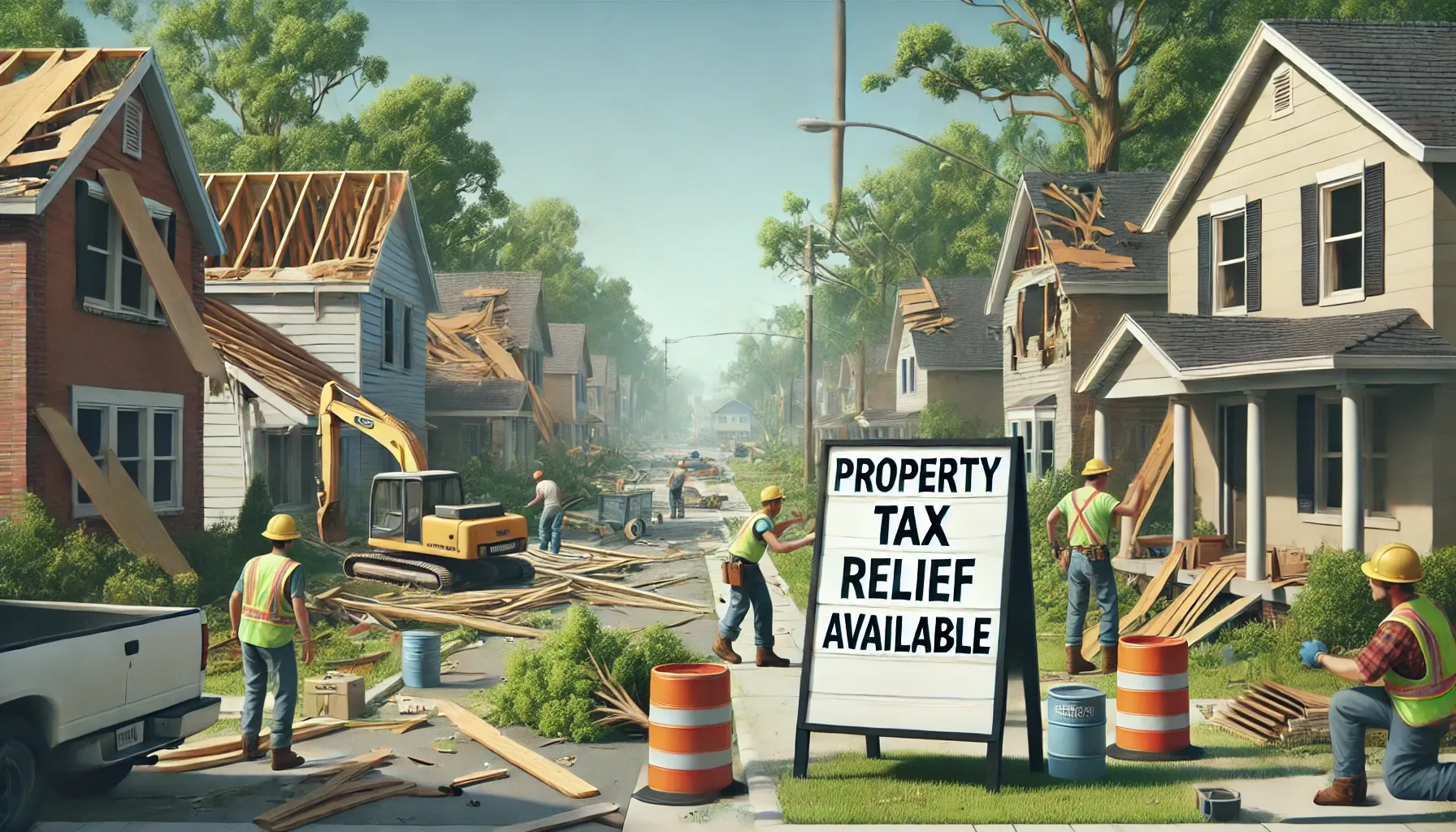Unlocking Property Tax Relief: Essential Steps for Homeowners Affected by Natural Disasters
Navigating Property Tax Relief After a Natural Disaster: What You Need to Know
Natural disasters can hit hard, leaving homes in ruin and finances in disarray. If you’ve felt the weight of a recent calamity like Hurricane Helene, know this: there’s a lifeline available to help ease your tax burden. Understanding the property tax relief options put forth by Georgia’s legislation can make a significant difference in your recovery journey.
What Changed?
In 2022, an important question was put to voters: should local governing bodies have the authority to grant temporary tax relief for properties severely damaged or destroyed due to a federally declared disaster? The answer came back resoundingly in favor—53% approved the measure.
The General Assembly then passed HB 311, which paves the way for local governments to implement these critical relief measures. Here’s how it breaks down for homeowners like you:
Key Benefits of Temporary Tax Relief:
- Immediate Financial Breather: Property owners can experience significant savings when local governments reduce millage rates or offer flat dollar credits against property taxes.
- Automatic Enrollment: Homeowners don’t have to scramble to apply—if your property qualifies, relief is automatically granted based on local government resolutions.
- No Overlooked Properties: If you feel your property has been missed in the evaluation process, there’s an appeal option that allows for on-site inspections to ensure no home falls through the cracks.
How It Works: A Step-by-Step Guide
- Check Federal Disaster Status: Ensure that your area is included in the federally declared disaster list.
- Local Damage Report: The Local Emergency Management Director will compile a damage report that outlines affected properties.
- Tax Commissioner Review: Using the damage report, the Tax Commissioner will identify eligible parcels for tax relief.
- Governing Authority Resolution: The county or city will adopt a resolution granting temporary relief—this could be a reduction in millage rates or a flat amount credited toward your tax bill.
- Automatic Qualification: Eligible properties automatically qualify for relief; however, an appeal can be made if you believe your property was mistakenly excluded.
Your Role in Advocating for Change
While this legislative framework is a significant step forward, action from local government is crucial. Here's how you can make an impact:
- Reach Out: Don’t hesitate to contact your local elected officials and express your support for implementing these provisions. Your voice matters!
- Mobilize Community Support: Encourage neighbors and fellow homeowners to join you in advocating for action—there’s strength in numbers.
- Leverage Resources: If you're unsure how to communicate with local boards, consider tapping into advocacy programs that can provide guidance and support.
With the right knowledge and advocacy, property owners can reclaim financial stability after a disaster strikes. Remember, understanding your options is just as vital as knowing how to take action. If you’re feeling overwhelmed, reach out today—your future deserves clarity and support!
Important Links to more information
https://www.legis.ga.gov/api/legislation/document/20232024/217861
https://www.billtrack50.com/billdetail/1565412
Stay informed, stay proactive, and let’s ensure that our communities rebound stronger than ever!



